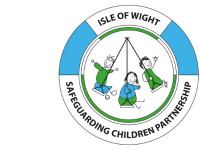Parental separation & conflict
What is parental separation and conflict?
Life is sometimes challenging and stressful and all parents and carers come under pressure from time to time. Most of us disagree at times in our relationships and not all conflict is damaging but when it happens often, it can affect us all, including our adolescent children.
Parental conflict can be harmful to children regardless of whether parents are together or separated, or are biologically related to the child, such as in blended or foster families. Parental conflict is associated with a range of problems for children and young people as they grow up including:
- Mental health difficulties.
- Poorer academic outcomes.
- Reduced employment prospects.
- Poor future relationship chances.
It is important to know that whether parents are together or apart, conflict in a relationship is completely normal. What matters is how you deal with conflict.
When conflict is handled in a destructive, rather than constructive, way it can have negative consequences for parents and their children. Conflict can range from a lack of warmth and emotional distance through to swearing and shouting. The relationship might be classed as “difficult”, but it is not abusive.
Why do you as parents and carers need to know about it?
All children and young people are affected by conflict between parents and carers. Adolescents need positive role models to observe conflict and how it is resolved in a calm and respectful way. It teaches them important life skills for future interactions with others and relationships. They need to know that conflict happens in all families and experience how it can be resolved. This will make them feel better equipped to deal with conflict in their own lives.
Adolescent children may react to parental conflict by spending more time out of the home to avoid the conflict and/or not wish to be drawn into it by being asked to take sides and/or pass messages between parents/carers when communication has broken down.
Here are some examples of ways in which we could look to manage conflict in a more helpful way:
| Useful ways to manage conflict | Less useful ways to manage conflict |
| Staying calm | Physical/verbal aggression |
| Listening and talking openly | Not overcoming disagreements |
| Finding a solution | Bearing grudges |
| Being positive | Sulking or ‘silent treatment’ |
Top tips for parents and carers
- Try and spend more quality time together as partners. Where possible, have a regular date night with your partner – this doesn’t have to involve money and could simply be a quiet meal in together at home.
- Choose the right time to address things. Waiting for a quiet time in the evening may be preferable to during a busy school run.
- Tell your partner how a situation makes you feel and try to show you understand their point of view.
- Consider and ask each other’s views; be willing and open to compromise.
- Listen to each other’s views without interrupting each other; one voice at a time.
- Make sure everyone has an opportunity to voice their view, provide time for the other person to respond to what has been said, wait and listen.
- Communication really is key. Celebrate things you agree on and use this in future discussions.
An important part of being a parent is to find out together what works best for you as a family. Sitting down and talking about what is going well and what may need more attention, or a change of thinking are good ways of ensuring communication is open and transparent. This creates an environment that ensures everyone’s views are heard and a sense of equality within the relationship.
National services to help you
Anna Freud National Centre for Children and Families offers advice and guidance for parents and carers in conflict or separation. Click here
Click Relationship – support families experiencing conflict. Click here
Relate – an organisation that also supports families where a couple have or are separating, focusing on the impact on the whole family. Click here
Online resources and courses for you to access
‘See it differently’ are an organisation that can help with parental conflict. The link below provides five short videos for parents to watch, which may help you to see and do things differently when arguing. These videos can help you to understand new ways of managing conflict and how to change how things play out in the household, which can potentially lead to healthier and happier outcomes for everyone, including your children. Click here
OnePlusOne have free digital resources designed to help you as a parent reflect on the conflict in your relationship and the impact this has on your children. These will help to promote behaviour change and help you, as a parent, to have disagreements in ways that are helpful rather than harmful.
To access the courses, you will need a smartphone, tablet, or computer and internet connection. The courses are online so you can go through them at your own pace, save your progress and come back to it later, if you wish. Click here to register.
Where can I get local advice and support?
Hampshire
Hampshire Healthy Families is a partnership between Southern Health Foundation Trust and Barnardo’s. The service support children and young people from 0-19 years, and their families, parents and carers, across Hampshire.
Isle of Wight
Isle Of Wight Family Centres offer information, advice and support to families on the Isle of Wight with children aged 0-19 years. They recognise that being a parent is rewarding but also brings its challenges as every child is unique. To help you understand your child and their needs they offer a range of parenting programmes and services to cover all ages and stages including online courses and workshops.
QR Code:


